UK
Nation in a stateBy The Eye
-8th July 2024

The Eye
Articles published in The Eye are written by a team of contributors and edited by the multi-award winning former BBC news and current affairs reporter, Phil Parry.

‘I had better be clear in this story…’
For our Editor, Welshman Phil Parry, politics has always played an important part during his 40 year journalistic career, so he has looked on with interest as Sir Keir Starmer’s Labour party swept to victory in last week’s General Election (GE), and how he has now prioritised visiting, as the media have reported, the “four nations”, but it has begged the question of what exactly IS a ‘nation’!
It’s fascinating to watch people squirm
For our Editor, Welshman Phil Parry, politics has always played an important part during his 40 year journalistic career, so he has looked on with interest as Sir Keir Starmer’s Labour party swept to victory in last week’s General Election (GE), and how he has now prioritised visiting, as the media have reported, the “four nations”, but it has begged the question of what exactly IS a ‘nation’!
It’s fascinating to watch people squirm
.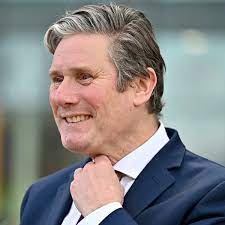

‘I’m going to visit the, er, nations…’
We have seen it with politicians, some of whom were ejected by voters at the ballot box last week, because they weren’t liked.
We are seeing it now with how the media report events because they are keen not to offend.
So when they say Sir Keir Starmer is visiting all of the UK, they say that he is going to “all four nations”. But are there really FOUR? Wales, England and Scotland are definitely nations, yet what about Northern Ireland?
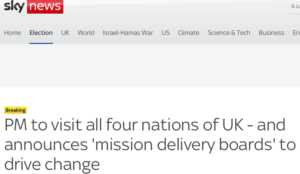
We have seen it with politicians, some of whom were ejected by voters at the ballot box last week, because they weren’t liked.
We are seeing it now with how the media report events because they are keen not to offend.
So when they say Sir Keir Starmer is visiting all of the UK, they say that he is going to “all four nations”. But are there really FOUR? Wales, England and Scotland are definitely nations, yet what about Northern Ireland?

This for, example, was Sky News: “The new prime minister has announced he will be visiting all four nations of the UK from tomorrow (Sunday).
“Sir Keir Starmer confirmed he will travel to Scotland first before heading to Northern Ireland, Wales and back to England.”
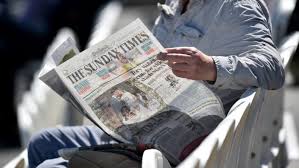
“Sir Keir Starmer confirmed he will travel to Scotland first before heading to Northern Ireland, Wales and back to England.”

Readers were told that Sir Keir Starmer was touring “…every nation”
The BBC report yesterday was: “Keir Starmer is heading to Edinburgh as he starts a UK-wide tour to meet the heads of the devolved nations”.
The Sunday Times declared: “He (Sir Keir) is touring every nation”.
Symbolically it was ensured that the Welsh and Scottish flags (although not the Northern Ireland one) were prominently displayed alongside the Union flag, when Sir Keir arrived in Downing Street.
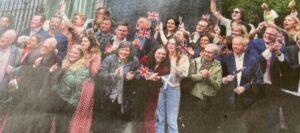
The BBC report yesterday was: “Keir Starmer is heading to Edinburgh as he starts a UK-wide tour to meet the heads of the devolved nations”.
The Sunday Times declared: “He (Sir Keir) is touring every nation”.
Symbolically it was ensured that the Welsh and Scottish flags (although not the Northern Ireland one) were prominently displayed alongside the Union flag, when Sir Keir arrived in Downing Street.

They waved the flag for Labour
At least these politicians (and their supporters) appear to be clear, even if the media are not.
Northern Ireland was carved out of the island of Ireland (which is certainly a nation) to be part of Great Britain, so as to avoid upsetting the Unionists. Indeed the British passport actually says: “UNITED KINGDOM OF GREAT BRITAIN AND NORTHERN IRELAND”!
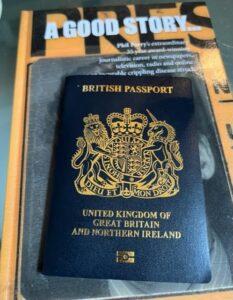
At least these politicians (and their supporters) appear to be clear, even if the media are not.
Northern Ireland was carved out of the island of Ireland (which is certainly a nation) to be part of Great Britain, so as to avoid upsetting the Unionists. Indeed the British passport actually says: “UNITED KINGDOM OF GREAT BRITAIN AND NORTHERN IRELAND”!

In the old days the region (words are chosen carefully here!) used to be called a ‘province’, so it is obvious that this whole area is extremely problematic, and when The Queen died it became particularly confusing.
For example – Reuters had as its headline: ‘King Charles vows to serve his nation as Britain mourns late queen’. The Independent gave us: ‘National mourning: What happens now the Queen has died’. In the Daily Echo it was: ‘Queen Elizabeth II: National mourning guidance issued to businesses & sport’. Sky News offered: ‘a period of national mourning has begun – how the Queen’s death is being marked today’.

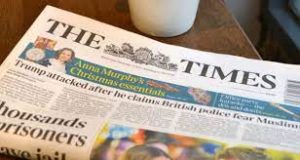
For example – Reuters had as its headline: ‘King Charles vows to serve his nation as Britain mourns late queen’. The Independent gave us: ‘National mourning: What happens now the Queen has died’. In the Daily Echo it was: ‘Queen Elizabeth II: National mourning guidance issued to businesses & sport’. Sky News offered: ‘a period of national mourning has begun – how the Queen’s death is being marked today’.


To The Times there was no doubt
The Times proclaimed: ‘Mourning lets a nation become a family again’ and The Sun (which is owned by the same company) screamed: ‘The Queen mourning period: What the 10 days of national mourning mean’
But The Queen (and now The King) was/is HEAD OF STATE. This state comprises a number of DIFFERENT nations, so is Sir Keir visiting FOUR or THREE, plus a region?!
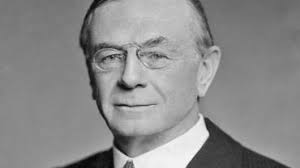
The Times proclaimed: ‘Mourning lets a nation become a family again’ and The Sun (which is owned by the same company) screamed: ‘The Queen mourning period: What the 10 days of national mourning mean’
But The Queen (and now The King) was/is HEAD OF STATE. This state comprises a number of DIFFERENT nations, so is Sir Keir visiting FOUR or THREE, plus a region?!

Leo Amery spoke for England/the UK
Today’s UK is a RELATIVELY recent creation, and was only made in 1921, after what became the Republic of Ireland was hived off, so when Leo Amery was urged to “speak for England” in the House of Commons in 1940, strongly implying Neville Chamberlain wasn’t doing so, he was, of course, being urged to do it actually for the ‘UK’.
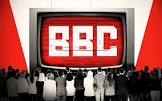
Today’s UK is a RELATIVELY recent creation, and was only made in 1921, after what became the Republic of Ireland was hived off, so when Leo Amery was urged to “speak for England” in the House of Commons in 1940, strongly implying Neville Chamberlain wasn’t doing so, he was, of course, being urged to do it actually for the ‘UK’.

Apart from the death of The Queen, and accession of her son, the entire concept of nationhood, was also thrown into sharp relief for me by the death of her husband Prince Philip at the age of 99, and the astonishing amount of coverage devoted to THAT (this could sound a warning bell for reporting about Sir Keir’s visit to “all four nations”). There was heavy criticism of the volume of these reports, and a message on The BBC website read: “We’re receiving complaints about too much TV coverage of the death of HRH Prince Philip, Duke of Edinburgh”. In fact the deluge of protests became so great, that officials had to create a dedicated complaints page on their website.
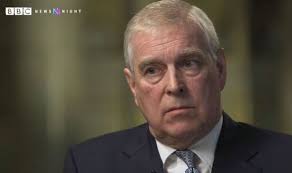

Prince Andrew said his father was the grandfather of the ‘nation’
But confusion, apparently reigned (an appropriate word perhaps!),and in an interview by Prince Andrew (the first since his disastrous one in 2019), his father was described as “the Grandfather of THE NATION”.
Nicholas Witchell said the death of Prince Philip was “a moment of real NATIONAL sadness”. The headline for Sky News was: “Prince Philip: What does it mean to be in a period of NATIONAL mourning?”
But confusion, apparently reigned (an appropriate word perhaps!),and in an interview by Prince Andrew (the first since his disastrous one in 2019), his father was described as “the Grandfather of THE NATION”.
Nicholas Witchell said the death of Prince Philip was “a moment of real NATIONAL sadness”. The headline for Sky News was: “Prince Philip: What does it mean to be in a period of NATIONAL mourning?”
.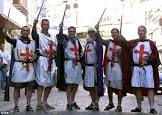

This is odd!
What indeed?!
There are now only England flags supporting the ‘national’ team at the Euros (although rather oddly some fans dress up as Norman knights to celebrate their ENGLISHNESS!), when at the 1966 World Cup, there was a large number of British flags in the crowd.
‘Englishness’, a book by Ailsa Henderson and (Welshman) Richard Wyn Jones, is a scholarly record of the union’s strengths. The nine big quantitative surveys of ‘Englishness’ they conducted since 2011 demonstrate that the number of people who describe themselves as exclusively or mainly ‘English’ rather than ‘British’ is growing, and that the idea of ‘Britishness’ – once the glue that held the UK together – is weakening
What indeed?!
There are now only England flags supporting the ‘national’ team at the Euros (although rather oddly some fans dress up as Norman knights to celebrate their ENGLISHNESS!), when at the 1966 World Cup, there was a large number of British flags in the crowd.
‘Englishness’, a book by Ailsa Henderson and (Welshman) Richard Wyn Jones, is a scholarly record of the union’s strengths. The nine big quantitative surveys of ‘Englishness’ they conducted since 2011 demonstrate that the number of people who describe themselves as exclusively or mainly ‘English’ rather than ‘British’ is growing, and that the idea of ‘Britishness’ – once the glue that held the UK together – is weakening
.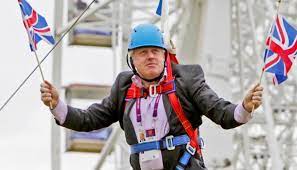

Boris Johnson held up the concept of ‘Britishness’…
Londoners use ‘British’ to signal their cosmopolitanism; the Scots and Welsh to signal their unionism.
The 2014 Scottish referendum on independence stoked English grievances without satisfying the Scots, and the 2015 election turned a growing political division between the two (along with Wales) into a chasm, which was only made deeper when Boris Johnson was elected in 2019.
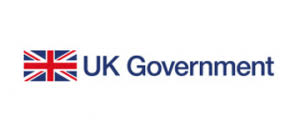
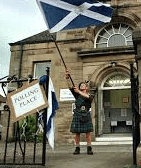
Londoners use ‘British’ to signal their cosmopolitanism; the Scots and Welsh to signal their unionism.
The 2014 Scottish referendum on independence stoked English grievances without satisfying the Scots, and the 2015 election turned a growing political division between the two (along with Wales) into a chasm, which was only made deeper when Boris Johnson was elected in 2019.


Is it fair?
Many in England apparently feel that by pocketing more money than they create, the Scots and Welsh are not playing fair (for example Scottish Government [SG] funding per person is 31 per cent above English levels, according to the Institute for Fiscal Studies [IFS]), and that membership of the EU was wrong because the UK Parliament is the only rightful source of power, while English history has provided ‘our island nation’ with both a web of ties with the Anglo-sphere, and a unique global economic as well as strategic niche.
However the idea of Britain (or the UK if you prefer) as an ‘island’ is also problematic. The historian Norman Davies called his book exploring nationhood ‘The Isles’ for that very reason.
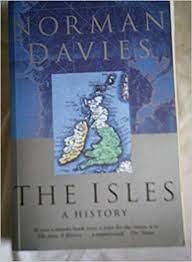
Many in England apparently feel that by pocketing more money than they create, the Scots and Welsh are not playing fair (for example Scottish Government [SG] funding per person is 31 per cent above English levels, according to the Institute for Fiscal Studies [IFS]), and that membership of the EU was wrong because the UK Parliament is the only rightful source of power, while English history has provided ‘our island nation’ with both a web of ties with the Anglo-sphere, and a unique global economic as well as strategic niche.
However the idea of Britain (or the UK if you prefer) as an ‘island’ is also problematic. The historian Norman Davies called his book exploring nationhood ‘The Isles’ for that very reason.

One of the difficulties with English nationalism, in its newly radicalised and politicised form, is that it may be too big to be tamed, England accounts for 84 per cent of the British population (and growing) while Greater London has more people than Scotland and Wales combined.
This is a situation which is very different from Germany or the USA where no ‘lander’ or state carries such a crushing weight among its peers.
The building of the UK was, over a millennium, the story of England’s relentless (at times extremely brutal), expansion. First riding roughshod over the Celtic lands on its borders, then peoples across the world. The 1707 Act of Union brought Scotland and England ‘together’, yet was strongly resisted north of the border. A ‘union of crowns’, when James VI of Scotland also became James I of England, in 1603, was a kind of precursor
This is a situation which is very different from Germany or the USA where no ‘lander’ or state carries such a crushing weight among its peers.
The building of the UK was, over a millennium, the story of England’s relentless (at times extremely brutal), expansion. First riding roughshod over the Celtic lands on its borders, then peoples across the world. The 1707 Act of Union brought Scotland and England ‘together’, yet was strongly resisted north of the border. A ‘union of crowns’, when James VI of Scotland also became James I of England, in 1603, was a kind of precursor
.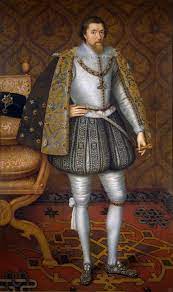

James I of England and James VI of Scotland, brought the two crowns together
Empire building is usually a pretty savage affair and this was no exception with England‘s, then Britain’s, success in carving out a world empire from the 17th century onwards, giving every UK ‘nation’ a stake in the shared prosperity.
Yet the phrase ‘the nation’ was even used in descriptions of how the public complained strongly about the amount of coverage concerning Prince Philip’s death!
There is, though, an underwhelming appetite for abandoning altogether the idea that Britain is an exceptional ‘nation’ – and it is illustrated extremely well by the tributes paid to The Queen, as well as those to her husband, Prince Philip (the Daily Mail for instance, offered 144 pages!).
Even Mr Johnson, seemed mixed up (surely not the only time!). When talking about the minute’s silence to mark a year of lockdown on March 23 2021, along with those who have died in the pandemic, he said: “We should also remember the great spirit shown by our NATION over this past year”.
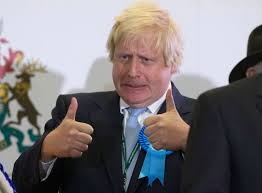 ‘
‘
Empire building is usually a pretty savage affair and this was no exception with England‘s, then Britain’s, success in carving out a world empire from the 17th century onwards, giving every UK ‘nation’ a stake in the shared prosperity.
Yet the phrase ‘the nation’ was even used in descriptions of how the public complained strongly about the amount of coverage concerning Prince Philip’s death!
There is, though, an underwhelming appetite for abandoning altogether the idea that Britain is an exceptional ‘nation’ – and it is illustrated extremely well by the tributes paid to The Queen, as well as those to her husband, Prince Philip (the Daily Mail for instance, offered 144 pages!).
Even Mr Johnson, seemed mixed up (surely not the only time!). When talking about the minute’s silence to mark a year of lockdown on March 23 2021, along with those who have died in the pandemic, he said: “We should also remember the great spirit shown by our NATION over this past year”.
 ‘
‘I believe in England, er, the UK’
Perhaps authors unknowingly touched on this dilemma.
In 1908 G.K. Chesterton wrote a poem called ‘THE SECRET PEOPLE’ which included the line “we are the people of England that never have spoken yet”, and now that some of the people of England have started speaking they are not going to be silenced soon.

Perhaps authors unknowingly touched on this dilemma.
In 1908 G.K. Chesterton wrote a poem called ‘THE SECRET PEOPLE’ which included the line “we are the people of England that never have spoken yet”, and now that some of the people of England have started speaking they are not going to be silenced soon.

‘BUY MY BOOK!’
The memories of WELSHMAN Phil’s, decades-long award-winning career in journalism (when commenting on major issues such as ‘nationhood’ was always paramount), as he was gripped by the rare disabling condition Hereditary Spastic Paraplegia (HSP), have been released in a major book ‘A GOOD STORY’. Order it now!
Regrettably publication of another book, however, was refused, because it was to have included names.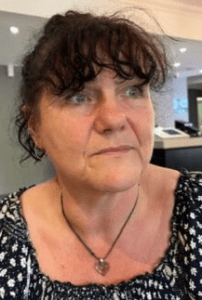
The memories of WELSHMAN Phil’s, decades-long award-winning career in journalism (when commenting on major issues such as ‘nationhood’ was always paramount), as he was gripped by the rare disabling condition Hereditary Spastic Paraplegia (HSP), have been released in a major book ‘A GOOD STORY’. Order it now!
Regrettably publication of another book, however, was refused, because it was to have included names.

David Morris’s sister Debra has campaigned to prove his innocence from the start – and is now writing letters to her MP and MS
Tomorrow – why the sister of a man protesting at his conviction for one of the worst murders in Wales is boosting her campaign to prove his innocence in the wake of the General Election (GE) result.
The Eye
https://the-eye.wales
Articles published in The Eye are written by a team of contributors and edited by the multi-award winning former BBC news and current affairs reporter, Phil Parry.
Tomorrow – why the sister of a man protesting at his conviction for one of the worst murders in Wales is boosting her campaign to prove his innocence in the wake of the General Election (GE) result.
The Eye
https://the-eye.wales
Articles published in The Eye are written by a team of contributors and edited by the multi-award winning former BBC news and current affairs reporter, Phil Parry.
No comments:
Post a Comment